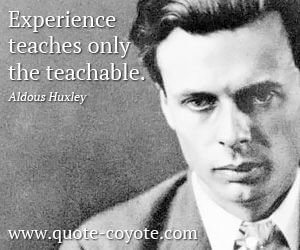Huxley’s Birthday Is a Good Time to Contemplate Where We Are as a Civilization

The book is set in London in the year 2540, a future where society functions like one of Henry Ford’s assembly lines. People are genetically engineered and mass-produced in hatcheries. They’re fed a steady diet of antidepressants, amusements, and sex to keep them complacent. When George Orwell’s dystopia Nineteen Eighty-Four came out in 1948, people liked to compare the two and argue about which bleak future was more likely to happen. Huxley defended his vision, saying it would be easier to control people through pleasure than through fear.
At this point in our society’s evolution, it’s hard to pick a winner: pleasure or fear. Most Americans are born into an affluence that can only be dreamed about in many parts of the world. Since our education system doesn’t force young people to come to grips with this reality, we feel strangely entitled to physical comfort, ubiquitous electronic entertainment, and an income stream to support all this good stuff. At the same time, we harbor a fear, exploited and amplified by demagogues, that we could easily lose all this pleasure because of a certain targeted group: Muslims, Mexicans, welfare queens, liberal elitists, environmental fanatics, the fake news media, and so forth.
Maybe we could learn to view this differently, but, as the pic of Huxley above suggests, it’s possible that we’re simply not capable of being taught.
